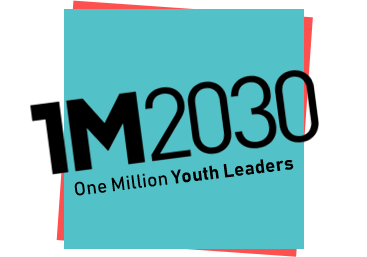1M2030 Story #11: Ethical Global Engagement - By The Stateless Collective
Hailey Hart-Thompson, Mohammad Ahsan Fuzail, Jessica Weber
Our name is the Stateless Collective and we are one in a million. This is our story.
On a 1 to 5 scale, the average student who has participated in a research-based experiential learning program rates their readiness to perform ethical fieldwork at a 1.
This measurement is based on data collected from students who completed the Interdisciplinary Program in Forced Displacement—a 3-week-long program allowing undergraduates to travel to Uganda, Lebanon, or Colombia to learn about displacement—and Engineers Without Borders at Boston University.
While global engagement is a major aspect of an international research institution, this 1 out of 5 rating is extremely problematic. These programs involve close contact with unfamiliar communities and the people living within them.
When unprepared American undergraduates enter lower- and middle-income countries, the range of possibilities spans from overestimating their importance and impact to retraumatizing interviewees and community members.
Our team discovered that there is a limited amount of thorough, culturally sensitive, and engaging preparation material available to students planning to participate in research-based travel programs. This gap in training is how the Stateless Collective formed.
The Stateless Collective is a group of Boston University students who volunteer our time to create programs to encourage ethical global engagement with displaced communities while preparing potential leaders for the process.
Many of us have traveled to countries such as Uganda, Lebanon, and Kenya and experienced firsthand the ethical dilemmas of American students traveling to low-income communities where we are unfamiliar with the customs, languages, and complex humanitarian issues these people face.
Our main goal is to prepare college-age students coming into close contact with unfamiliar communities while participating in service learning, research, or other short-term trips to ethically and empathetically engage with complex health issues. Although we focus specifically on areas impacted by forced displacement, we understand this issue is omnipresent in all places and often disregarded. Examples include different types of homelessness and eviction, war, internal displacement, natural disasters.
Our website is a community platform that is broadly accessible and can be used by many different stakeholders in the long-term.
Our interactive modules cover topics such as ethnographic-style interviewing and person-first data collection, global health basics, privilege/identity/saviorism, cultural sensitivity, holistic and collaborative design processes, working with ethical constraints, and available support systems for students.
We piloted our curriculum in a two-week intensive addressing issues of forced displacement, called the “Summer Intensive in Global Engagement” (SIGE) through a partnership with the Initiative on Forced Displacement. The intensive focused on issues faced by urban refugees in Uganda, Colombia, Lebanon, and the United States. We were able to pilot our website and parts of our curriculum through lectures, design workshops, and facilitated discussions.
Over 200 students and researchers from six continents participated, completing both pre and post-program surveys, allowing for an adequate evaluation of successes and areas needing improvement.
As a team of many different backgrounds, we also spend much of our time developing our understanding of how to decolonize and unsettle our own perceptions of international aid, humanitarian initiatives, and academic research in low- and middle-income countries. As a team of mainly American students, we understand the importance of examining our own positionality and the voice we are given. We are currently focusing on forming stronger partnerships with students, organizers, and other locals abroad in the host communities of our programs in order to foster international collaboration and bring their voices to the forefront of this field.
You can find more information about our work and the full SIGE module at: http://www.statelessco.org/
Co-founders: Hailey Hart-Thompson, Mohammad Ahsan Fuzail, Jessica Weber
Disclaimer: Any views or opinions represented in these articles are personal and belong solely to the author. The content provided by these authors do not necessarily reflect the opinions and beliefs and viewpoints of 1M2030, or it's affiliates.
1M2030 Stories
1M2030 Stories is a weekly feature of a young leader and their unique story.
If you think you have a compelling story to tell, we invite you to send us your article to info@1m2030.org.


